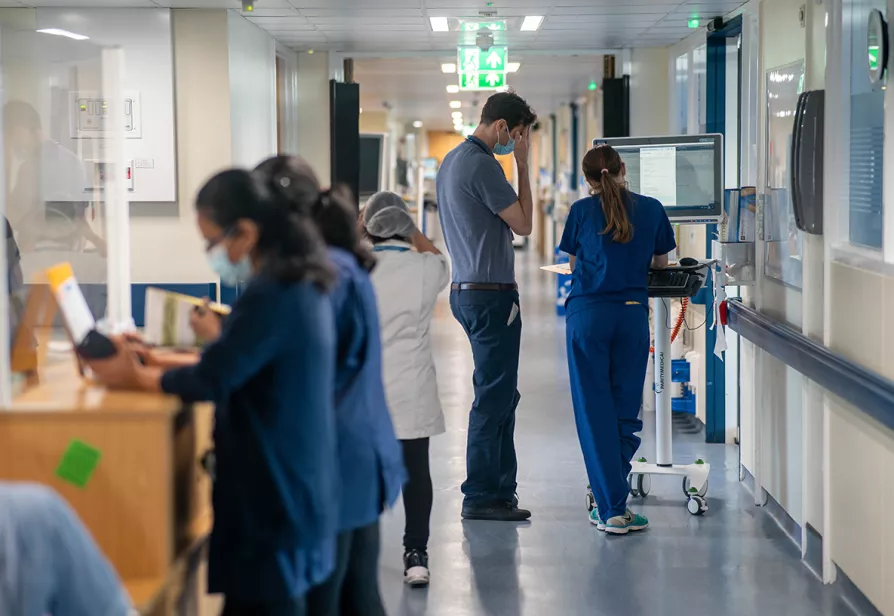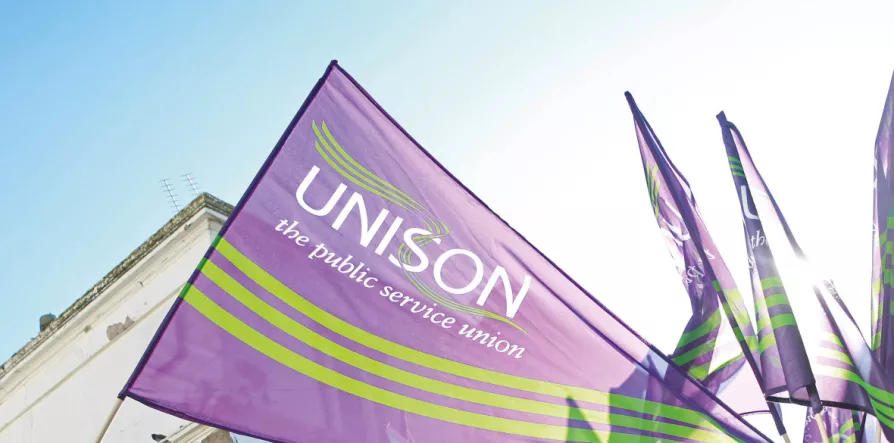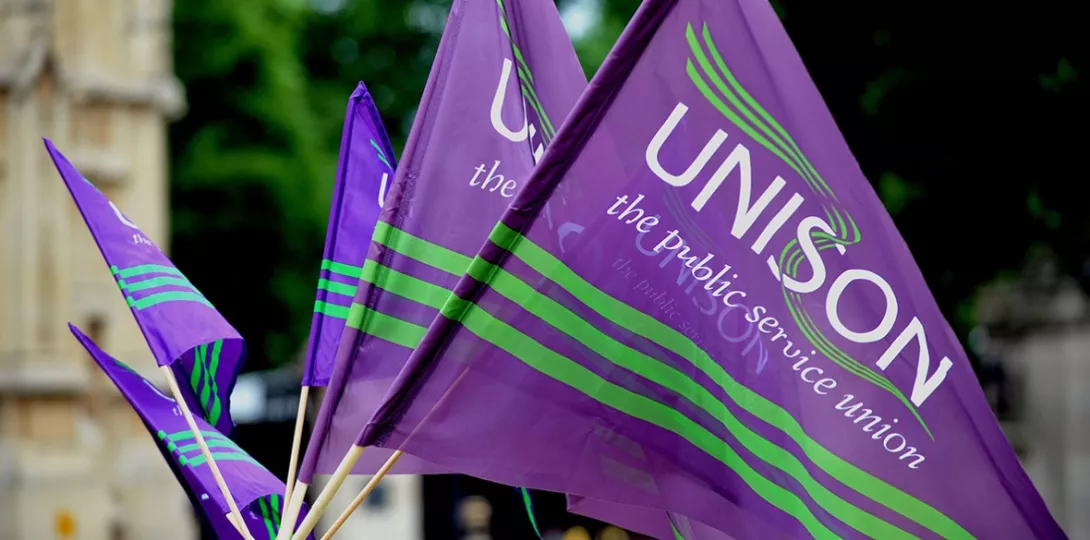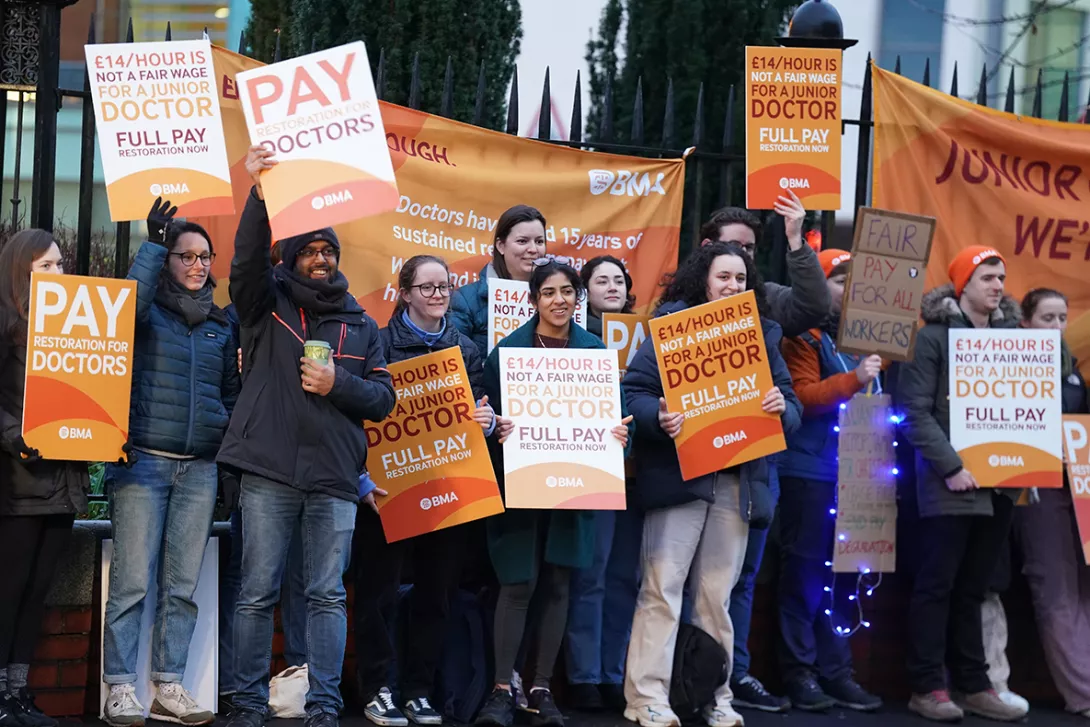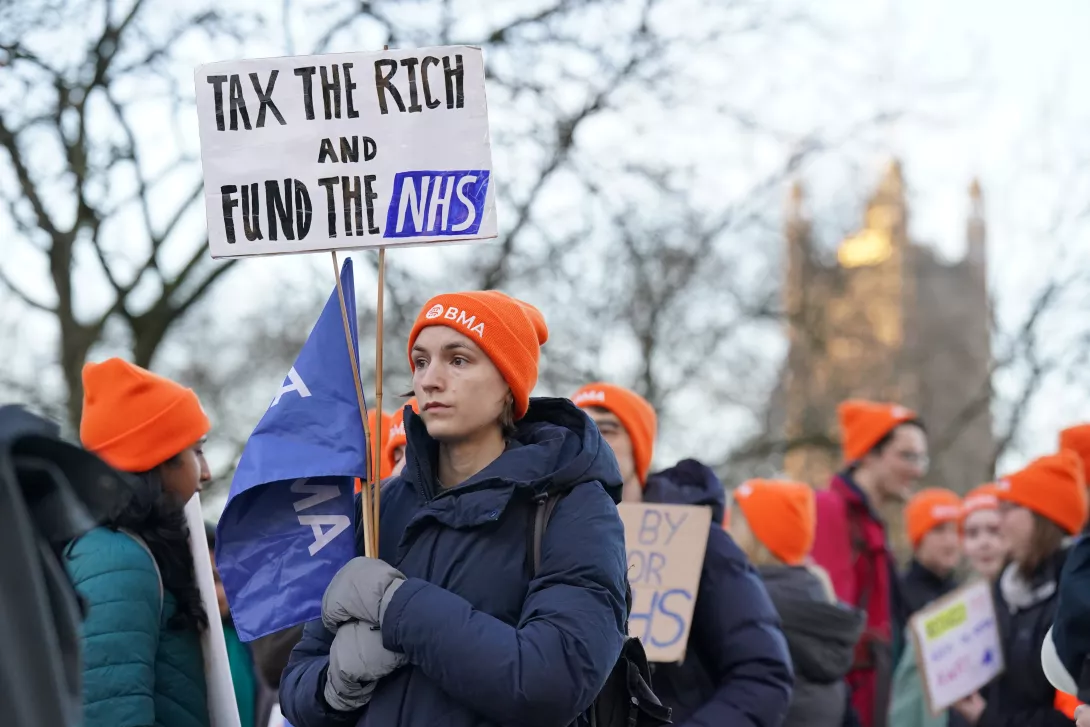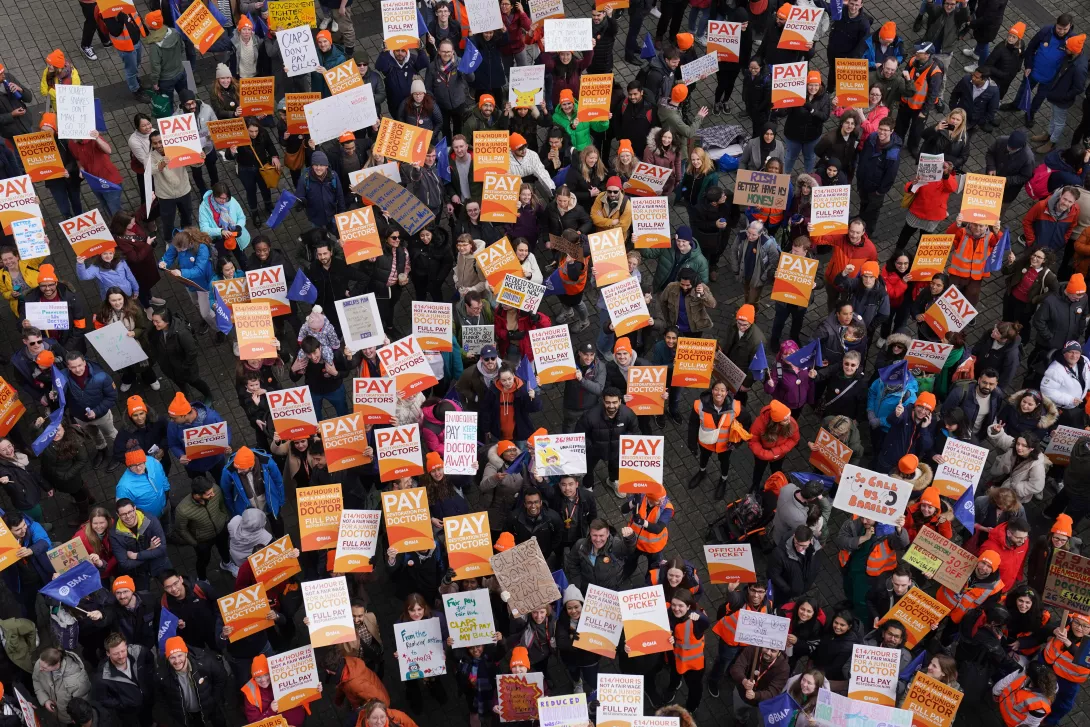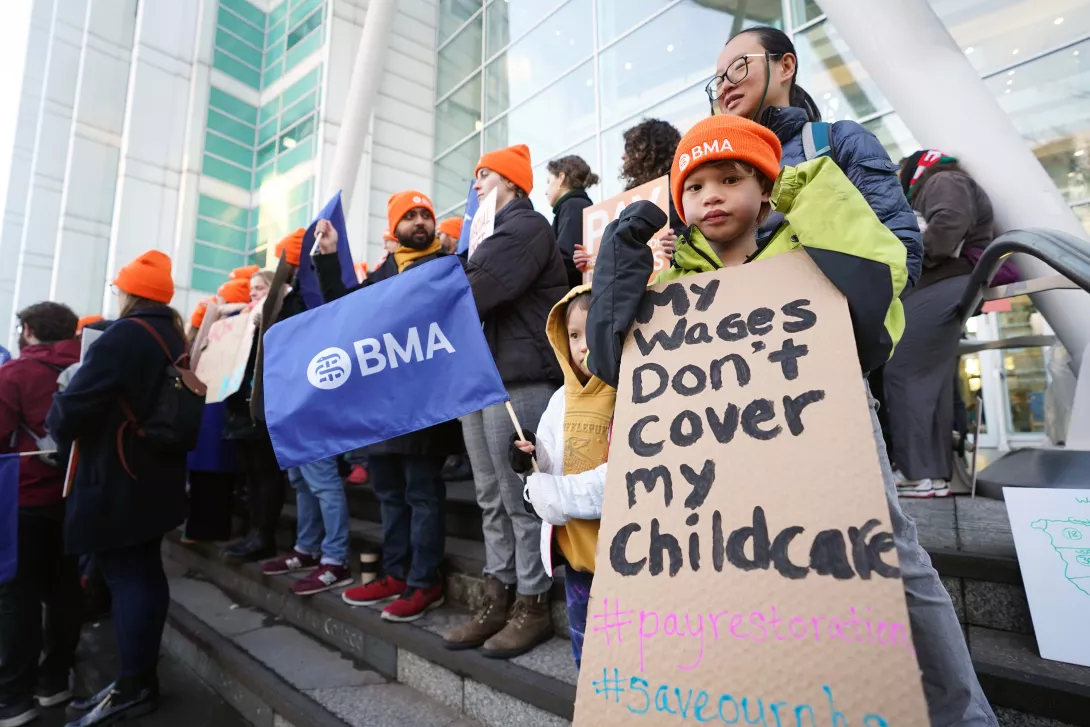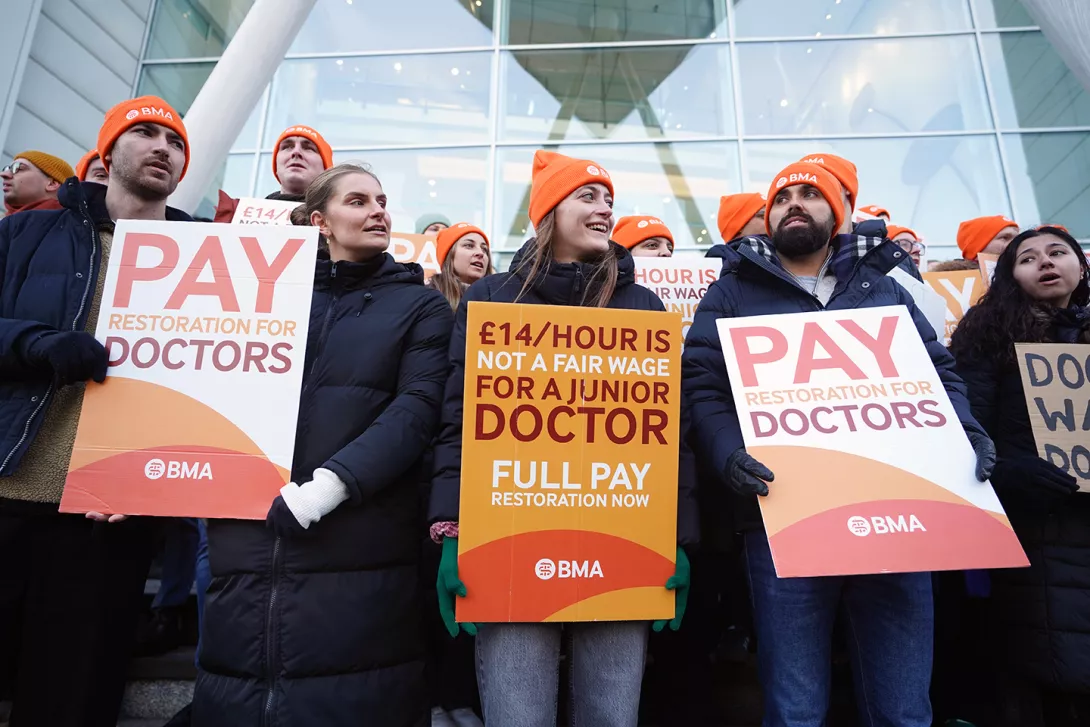
EXHAUSTED junior doctors are “questioning whether we want to stay in the health service at all” ahead of their unprecedented six-day strike tomorrow.
Dr Rob Laurenson and Dr Vivek Trivedi warned that their profession is “exhausted and disenchanted,” saying “morale on the front line has never been lower.”
“It’s incredibly disappointing that we’ve had to call this strike — no doctor ever wants to have to take industrial action,” said the British Medical Association’s (BMA) junior doctors committee co-chairs.
It comes as a medical chief today warns that the NHS may have to deal with “one of the most difficult starts to the year” it has ever faced.
National medical director Professor Sir Stephen Powis believes the service is set to be “on the back foot.”
He said: “Six consecutive days of industrial action comes at one of our busiest periods — the action will not only have an enormous impact on planned care, but comes on top of a host of seasonal pressures such as Covid, flu and staff absences due to sickness — all of which is impacting on how patients flow through hospitals.”
The action by junior doctors in England will affect on almost all routine care, with consultants covering as the NHS prioritises urgent and emergency cases.
The strike amounts to 144 consecutive hours of industrial action — the longest in the 75-year history of the health service.
The BMA wants junior doctors to get a pay rise from £15 per hour to £21ph — a 35 per cent increase it says would take them to 2008 levels of pay, which the government says is unaffordable.
NHS Confederation chief executive Matthew Taylor yesterday said the “stand-off” between ministers and the BMA is holding firm.








